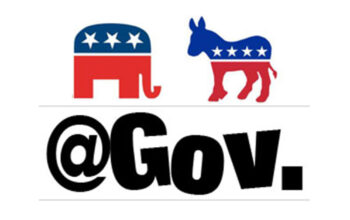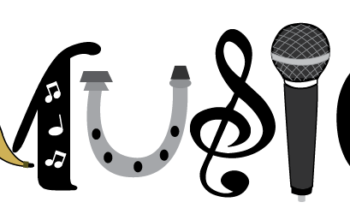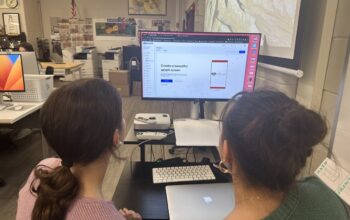An Essential Skill for High School Students and Beyond
By Trey Kollitides
Class of 2023
Financial literacy has become increasingly important in the modern world, and teaching it in high school is a great way to prepare students to make sound financial decisions. As the world evolves around us, so must high school curriculums across the country, and it is increasingly important to prioritize courses such as financial literacy, economics, and statistics.
Financial literacy is the ability to understand and use finance’s language, principles, and tools to make effective decisions. It includes but is not limited to risk management, effective management of personal finances, budgeting, investing, and knowledge essential to achieving financial independence. This critical skill has a far-reaching impact on individuals, communities, and the global economy. Educators can foster an environment of economic empowerment and mental well-being by equipping students with the knowledge and tools necessary to make informed financial decisions.
The lack of financial literacy among young adults has been a cause of concern in recent years. A survey by the Financial Industry Regulatory Authority (FINRA) found that only 24 percent of millennials know basic financial concepts such as budgeting, saving, and investing. This lack of financial literacy is primarily because financial education is rarely taught in high schools. According to the Council for Economic Education, only 17 states require high school students to take a personal finance course.
The Importance of Financial Literacy in High School
A high school classroom is the perfect environment to introduce financial literacy concepts. Mr. Tournas New Canaan’s financial literacy teacher believes it is in the nation’s best interest for the government to promote financial literacy by creating a mandated requirement in high school and supplying appropriate funding to encourage High school students to become financially literate consumers and to better handle the inevitable ups and downs of their financial lives. Additionally high school students need to become financially literate consumers not only to manage money with more confidence, but to also have a better chance of handling the inevitable ups and downs of their financial lives. According to Mr Tournas The following topics are absolutely critical for every person to know about: Investing and the Stock Market, Compound Growth, Investing for Retirement, Taxes, Credit and Loans.

Impact on Education Level
Financial literacy can have a profound effect on an individual’s education level. Research shows that students with a solid financial background are more likely to pursue higher education and secure scholarships or grants. By understanding the actual cost of education in retrospect to the salary they will be making, students are better prepared to make more informed decisions about their educational path.
Impact on Occupation
Career success often hinges on an individual’s ability to navigate the financial aspects of their chosen profession. From negotiating salaries to managing business expenses, financial literacy enables individuals to make well-informed choices that align with their professional goals. Moreover, a solid financial background can open up opportunities for entrepreneurship, allowing individuals to create jobs and contribute to the economy.
Impact on Personal Finances
A basic understanding of managing money can help students make sound financial decisions. Financial literacy fosters a sense of personal responsibility and helps individuals develop healthy financial habits. Individuals can make strategic decisions that protect and grow their wealth by understanding compound interest, inflation, and risk diversification. Students can learn how to create and stick to a budget, save money, invest wisely, and protect their finances from fraud and identity theft. They can also learn to use credit cards responsibly and save for retirement. By equipping students with the skills to make intelligent financial decisions, high schools can help set them up for success in later life. This knowledge contributes to individual economic security and reduces the likelihood of financial crises that can have devastating consequences on a larger scale.
Impact on Global Economic and Mental Well-being
A financially literate population is essential for maintaining a healthy global economy. As individuals make more informed financial choices, they help to stabilize markets and promote economic growth. Additionally, financial literacy reduces the stress associated with money management, contributing to improved mental well-being. Furthermore, a financially literate population is more likely to responsibly manage debt and make intelligent decisions about saving and investing their money. As a result, the risk of financial crises and economic downturns can be reduced. Financial literacy in high school can also help students become more engaged citizens. By understanding the basics of economics and finance, students can better understand current economic issues. They can also become more informed and active voters, which can help ensure that the country’s economic policies are in the population’s best interests. This, in turn, creates a healthier, more productive workforce that drives innovation and prosperity.
Prioritizing financial literacy, economics, and statistics into high school curriculums is an essential step in preparing yourself for the challenges of adulthood and becoming financially independent and responsible citizens. By arming ourselves with the knowledge and skills necessary to navigate the complex world of personal finance, we contribute to individual success and a healthier global economy. High school students should prioritize financial literacy, as it can have a lasting and positive effect on their future maybe Mr. Tournas can help you open a brokerage account to start investing in stocks, or invest in mutual funds or ETFs. Many past students that have emailed many years after they have graduation and have been immensely thankful for the opportunity to learn real life applicable financial skills for the rest of their lives.




